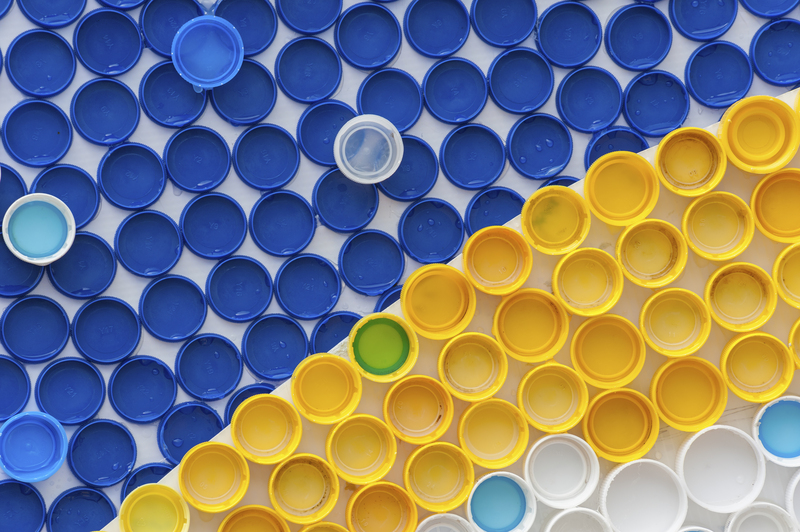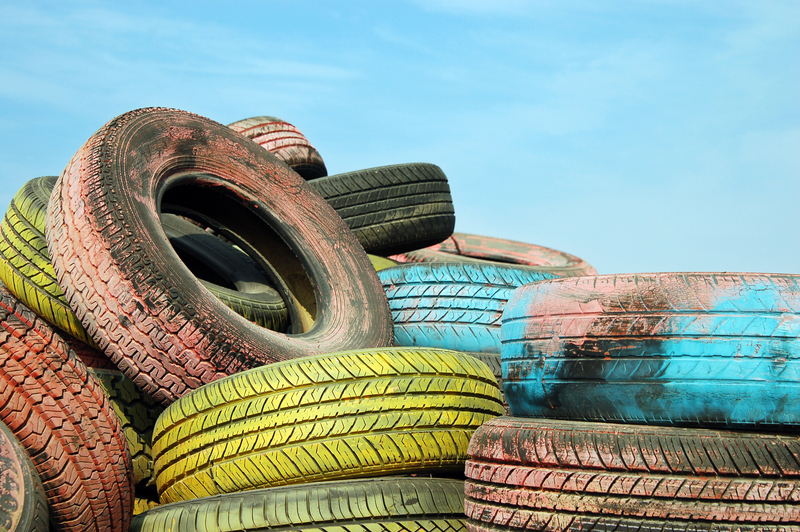Thorough Hoarder Clean Up and Decluttering for a Fresh Start
Hoarding disorder can overwhelm both individuals and families, turning once comfortable living spaces into areas suitable only for storage. If you or a loved one is struggling with accumulated possessions, initiating a thorough hoarder clean up and decluttering process is the first crucial step toward regaining comfort, safety, and peace of mind. In this comprehensive guide, we delve into effective methods and essential tips for rejuvenating your environment and embracing a fresh start.

Understanding Hoarding Disorder and Its Impact
Before tackling the complexities of hoarder cleaning and decluttering, it's important to understand the causes and consequences of hoarding disorder. Hoarding is a recognized mental health condition characterized by persistent difficulty discarding possessions, regardless of their value, leading to clutter that disrupts living and work areas.
Common Triggers and Effects of Hoarding
- Emotional Attachment: Many people with hoarding tendencies form deep bonds with objects due to past memories or sentimental reasons.
- Anxiety and Depression: Fear of losing information, possessions, or sentimental items creates emotional distress and can spiral into anxiety and depression.
- Reduced Living Quality: Excessive clutter often leads to unsanitary conditions, increased fire hazards, and restricted mobility within the home.
- Social Isolation: Embarrassment and fear of judgment prompt many hoarders to withdraw from social interactions.
The Importance of Professional Hoarder Clean Up
Tackling a hoarder clean up requires more than just motivation. It often demands structured planning, emotional support, and, in many cases, professional assistance. Prolonged accumulation can lead to compromised infrastructure, pest infestations, and health hazards such as mold or dust mites.
Steps to a Successful Hoarder Clean Up and Decluttering Process
Initiating a thorough hoarder clean up may feel daunting, but with a step-by-step approach and the right mindset, it's achievable. Here is a comprehensive breakdown of how to restore your living space and reclaim your life:
1. Assess and Plan
- Evaluate the Space: Carefully inspect affected areas. Make notes of high-priority zones and any potential biohazards.
- Set Realistic Goals: Divide the cleaning project into manageable segments. Focusing on one room or even a single corner at a time can reduce overwhelm.
- Gather Supplies: Stock up on trash bags, cleaning products, gloves, masks, and boxes for sorting.
- Seek Help: If the task is too overwhelming, reach out to friends, family, or professional hoarder cleaning services. Compassion and experience are invaluable in these situations.
2. Sorting and Categorizing
Begin by grouping possessions into clear categories. A popular method includes four basic groups:
- Keep: Essential or deeply cherished items you use regularly.
- Donate: Usable goods that others could benefit from. Consider local charities, shelters, or community groups.
- Discard: Broken, expired, or unusable items. Arrange for proper waste disposal or recycling for hazardous materials.
- Undecided: Items you're unsure about. Place these in a box and revisit them later with a clear mind.
3. Safe and Systematic Cleaning
Effective hoarder clean up involves more than organizing possessions. Cleaning must be systematic and thorough:
- Start Top Down: Dust and clean ceiling fixtures first, then tackle walls, furniture, and finally the floors.
- Sanitize Surfaces: Use disinfectants, especially in kitchens and bathrooms, to kill germs and remove buildup.
- Address Pests: Remove any signs of infestation. Professional exterminators may be necessary for severe cases.
- Air Quality: Open windows and use air purifiers to combat lingering odors, mold, and dust.
4. Emotional Support During Decluttering
Hoarder decluttering is as much an emotional endeavor as it is physical. Those parting with long-held possessions may feel grief, anxiety, or guilt.
- Compassion Matters: Offer encouragement, validate feelings, and avoid judgment.
- Patience: Allow the process to move at a comfortable pace, especially if the individual has a hoarding disorder.
- Professional Guidance: Counselors or therapists specializing in hoarding can provide essential emotional coping strategies.
Remember, compassionate hoarder clean up and decluttering can help break the emotional bond with objects and support long-term healing.
5. Sustainable Organization After Decluttering
Returning to a clean space isn't the end--it's a new beginning. Maintaining order is crucial for preventing relapse and ensuring lasting change.
- Decluttering Routine: Schedule regular checks to prevent the reaccumulation of clutter.
- Smart Storage Solutions: Use labeled storage bins, shelves, and organizing units to keep items accessible and orderly.
- Minimalism Mindset: Adopt a "less is more" approach by only bringing home what you truly need or love.
- Donate Often: Place a donation box in your home for items you no longer need. Periodically deliver them to charitable organizations.
Why Hire Professional Hoarder Cleaning and Decluttering Services?
While some cases of hoarder clean up and organization can be managed with support from friends or family, severe hoarding situations often require specialists. Here's why:
- Expertise: Trained professionals know how to tackle biohazard materials, pest infestations, and complex clutter safely.
- Efficiency: Equipped teams can work quickly and methodically, restoring homes in a fraction of the time.
- Non-judgmental Support: Experience working with hoarders gives professionals unique empathy and discretion.
- Disposal Logistics: Hoarder clean up services can manage difficult waste disposal and recycling regulations.
Hiring professional decluttering services not only accelerates cleanup--it also ensures health and safety standards are met, giving you peace of mind.
What to Expect from a Hoarder Clean Up Service
- Consultation and Assessment: The process usually begins with an inspection of the home and a personalized cleanup plan.
- Sorting and Removal: The team helps categorize items and strategize disposal, donation, or storage.
- Deep Cleaning: After decluttering, thorough cleaning eliminates dirt, allergens, and odors.
- Organization: The final stage involves setting up practical systems to help maintain a clutter-free environment.
The Psychological Benefits of a Fresh Start
Beyond the physical overhaul, complete hoarder decluttering offers profound mental and emotional rewards:
- Reduced Anxiety and Stress: Cluttered environments elevate stress and impede relaxation. A tidy space brings tranquility.
- Enhanced Productivity: Organized environments support focus and efficiency, making daily tasks easier.
- Improved Health: Removing dust, allergens, and tripping hazards reduces the risk of illness and accidents.
- Renewed Relationships: Clean homes can encourage social interaction and strengthen bonds with loved ones.
- Increased Self-Esteem: Taking control of your space is empowering, fostering a sense of pride and accomplishment.
Maintaining a Clutter-Free Home--Tips for Lasting Change
Sustaining a clean environment requires ongoing effort and intentionality. Here are actionable strategies for ongoing success after a hoarder clean up:
Set Boundaries for New Possessions
- One-In, One-Out Rule: For every new item that enters your home, dispose of or donate one item to prevent accumulation.
- Mindful Shopping: Make purchasing decisions based on actual need, not impulse or emotion.
- Routine Reviews: Assess your living spaces regularly and cull items that no longer serve a purpose.
Leverage Support Systems
- Accountability Partners: Stay in touch with friends or family who can offer encouragement and keep you on track.
- Professional Check-Ins: Regular appointments with a therapist or organizer can reinforce new habits.
- Join Support Groups: Community resources and mental health groups provide understanding and shared experience.
Invest in Organization Tools
- Utilize Vertical Space: Shelving units and wall hooks keep ground areas clear and maximize storage.
- Label Everything: Clearly labeled bins and containers help keep track of your possessions.
- Clutter-Free Entryways: Maintaining clear and organized entrances sets the tone for the rest of your home.

When Is It Time to Call for Help?
Not all hoarding situations require the same level of intervention. If you encounter any of the following, it's best to consult with a specialized hoarder clean up service:
- Blocked exits or entrances creating safety hazards
- Presence of pests, animal waste, or strong odors
- Mold, mildew, or significant water damage
- Unattended stacks of mail, expired food, or spoiled medication
- Risk of eviction or legal action due to property condition
Prompt action protects both your health and your legal standing, making a professional hoarder cleaning and decluttering service essential under these circumstances.
Conclusion: Embrace a Fresh, Clutter-Free Future
Initiating a thorough hoarder clean up and decluttering may seem insurmountable, but with the right approach, support systems, and, when necessary, professional help, anyone can create a healthier environment and embrace a fresh start. The benefits extend far beyond tidier rooms--they include renewed confidence, improved mental health, and restored relationships.
Take the first step toward a brighter future today. Decluttering isn't just about letting go of material possessions--it's about reclaiming your life, your space, and your peace of mind.
